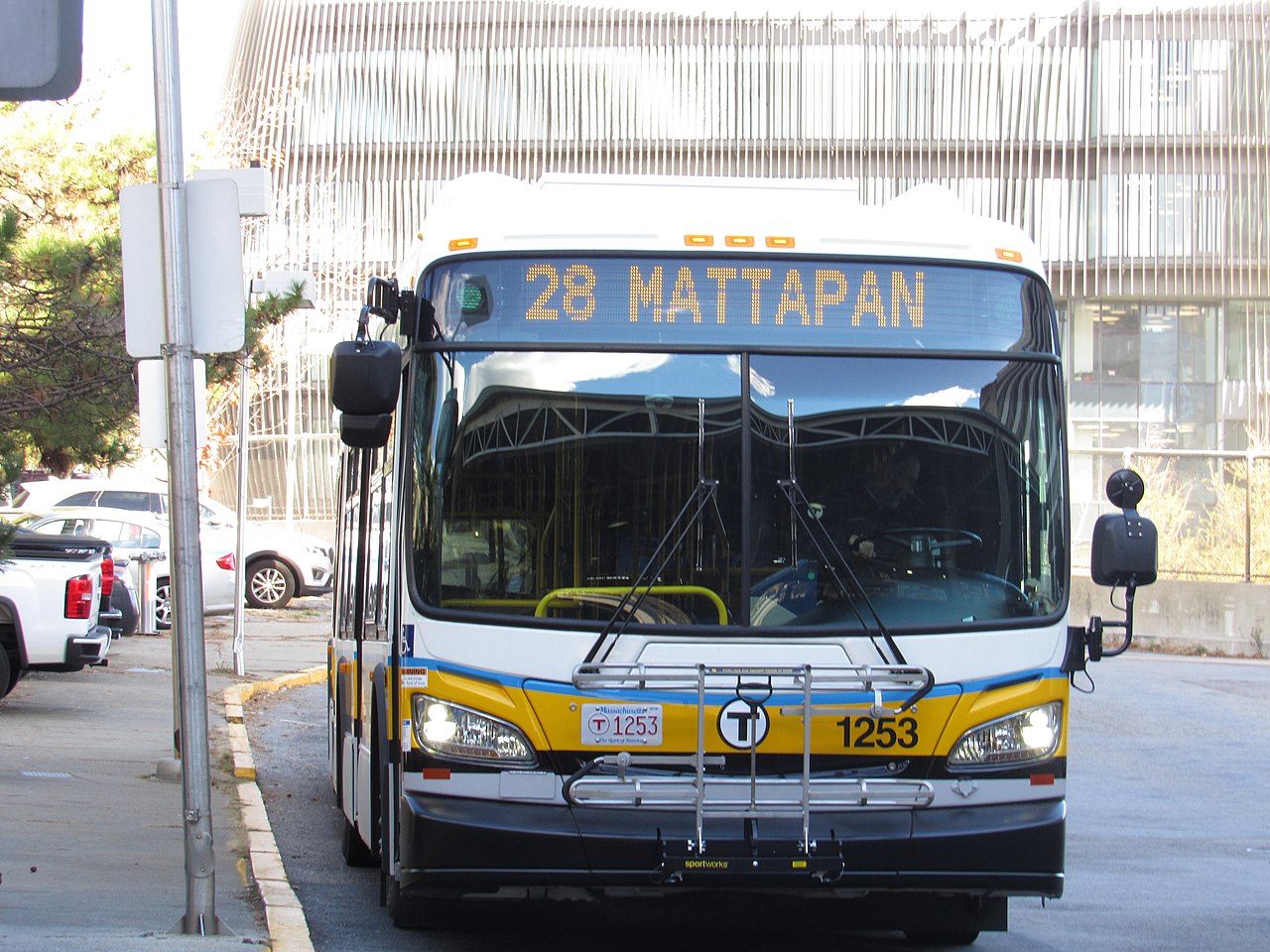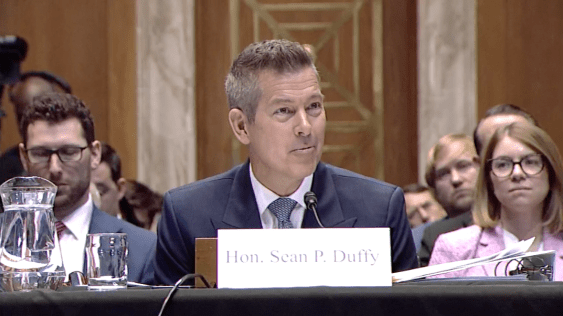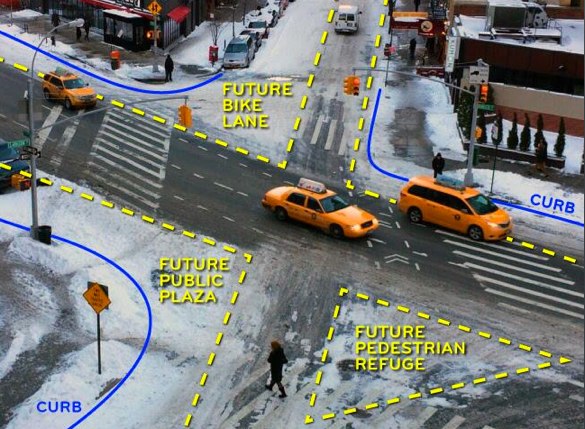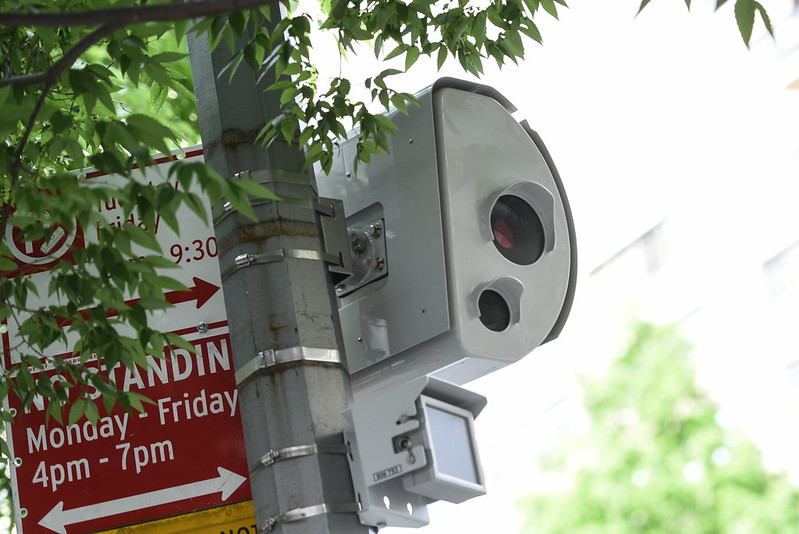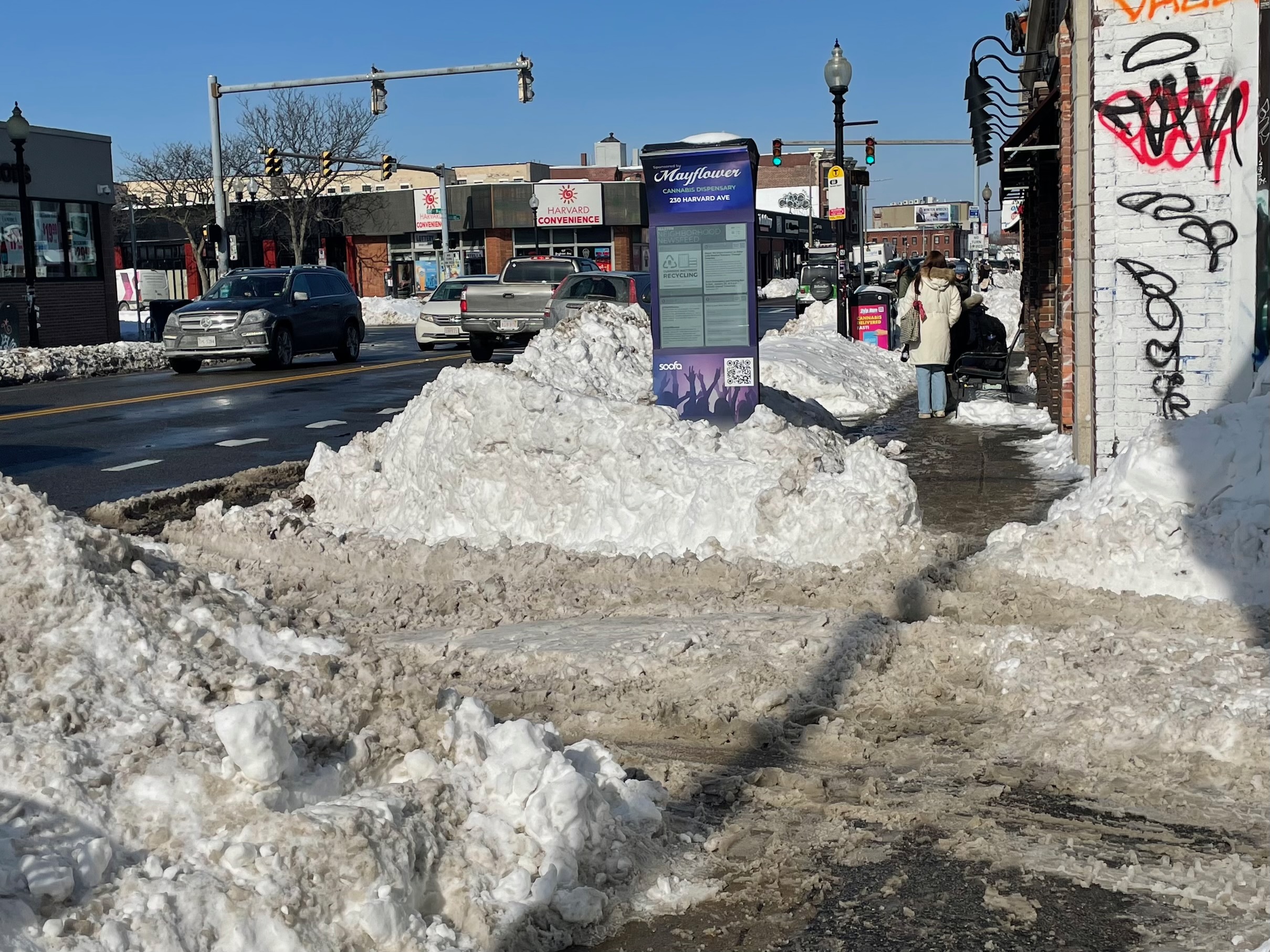In negotiations to pilot a fare-free 28 bus in Roxbury and Mattapan, MBTA officials are asking the City of Boston to also cover the costs of the neighborhood's The RIDE paratransit services – an ask that would considerably inflate the costs of the fare-free pilot.
Last month, at a mayoral candidates' debate focused on energy and environmental issues, Mayor Kim Janey announced that her administration would make the Route 28 bus – the state's busiest bus route – free to ride.
"I am working with the MBTA on a free bus pilot on the Route 28 line," said Mayor Janey in a statement provided to StreetsblogMASS. "I look forward to launching this initiative, connecting Mattapan Square, Grove Hall, and Nubian Square."
But, in negotiations to start that pilot, the MBTA isn't just asking the City of Boston to cover the lost fare revenue from riders on the 28. It's also asking the city to pick up the tab for The RIDE paratransit services along the Blue Hill Avenue corridor – a request that would significantly inflate the costs to the City of Boston.
The paratransit piece of fare-free bus service
The MBTA's The RIDE paratransit service provides door-to-door shared rides transportation to riders with mobility limitations that prevent them from using the T's other services.
Americans with Disabilities Act regulations require the T to provide paratransit rides at fares that are "comparable to the fare for a trip between the same points on the regular fixed route transit system," according to guidance from the Federal Transit Administration (FTA).
By that logic, the T argues that a fare-free pilot for the 28 bus route would also need to pay for free trips on The RIDE along the same corridor, between Nubian and Mattapan Squares.
"If implemented, the (fare-free route 28) pilot would need to include paratransit, as the fares on that mode are based upon comparable MBTA bus fares," an MBTA official told StreetsblogMASS.
According to a May 10 staff presentation to the MBTA's Fiscal and Management Control Board, fare-free bus service on the entire MBTA system would require the agency to find $56 to $70 million a year to make up for lost bus fare revenue.
But adding zero-fare paratransit would increase those costs by another 50 to 75 percent, both from lost RIDE revenue and from the costs of hiring more RIDE drivers and vehicles to accommodate increased demand.
However, the FTA's guidance leaves considerable room for interpretation about what a "comparable" paratransit fare is: "comparable fares" are defined as being "not more than twice the fare that would be charged to an individual paying full fare for a trip of similar length, at a similar time of day, on the entity’s fixed route system, exclusive of discounts" (emphasis added).
Advocates argue that a free ride on the 28 could reasonably be interpreted as a discounted fare – especially if other buses along the same corridor, like the 29, 23, and the 14, would still collect regular MBTA fares.
Other transit systems provide free bus routes without paying for free paratransit services. Denver's RTD, for instance, offers a pair of free bus shuttles across the city's downtown, but a customer service representative confirmed on Wednesday that its Access-A-Ride paratransit service would still charge a $5 fare for a trip along the same corridor.
Free rides for airport passengers, but not for Mattapan?
The T's argument that the City of Boston should cover the costs of paratransit in Mattapan and Roxbury also contradicts the MBTA's policy on its existing fare-free bus service for airport passengers.
As advertised prominently on the MBTA's website, "the Silver Line is free from Logan Airport."
That free bus ride dates from a 2012 agreement between the MBTA and Massport. But T officials confirmed earlier this week that the T does not offer free paratransit rides between Logan and destinations along the rest of the SL1 route.
A T official told StreetsblogMASS that "it’s not immediately clear why" the 2012 agreement between the T and Massport didn't include paratransit.
"That agreement was not developed by the staff involved in today’s discussions with the city about a free fare pilot," they added.
But for advocates of a fare-free 28 bus, it looks like a double standard.
“Giving primarily white and wealthy transit riders a free trip, while forcing primarily Black and low income riders to jump through hoops to access similar fare-free service, is exactly what structural racism looks like," says Stacy Thompson, executive director of the LivableStreets Alliance (and also, for full disclosure, a StreetsblogMASS board member).
Thompson also expressed frustration that The RIDE was being exploited "as a bargaining chip" in negotiations with City Hall for a fare-free 28.
